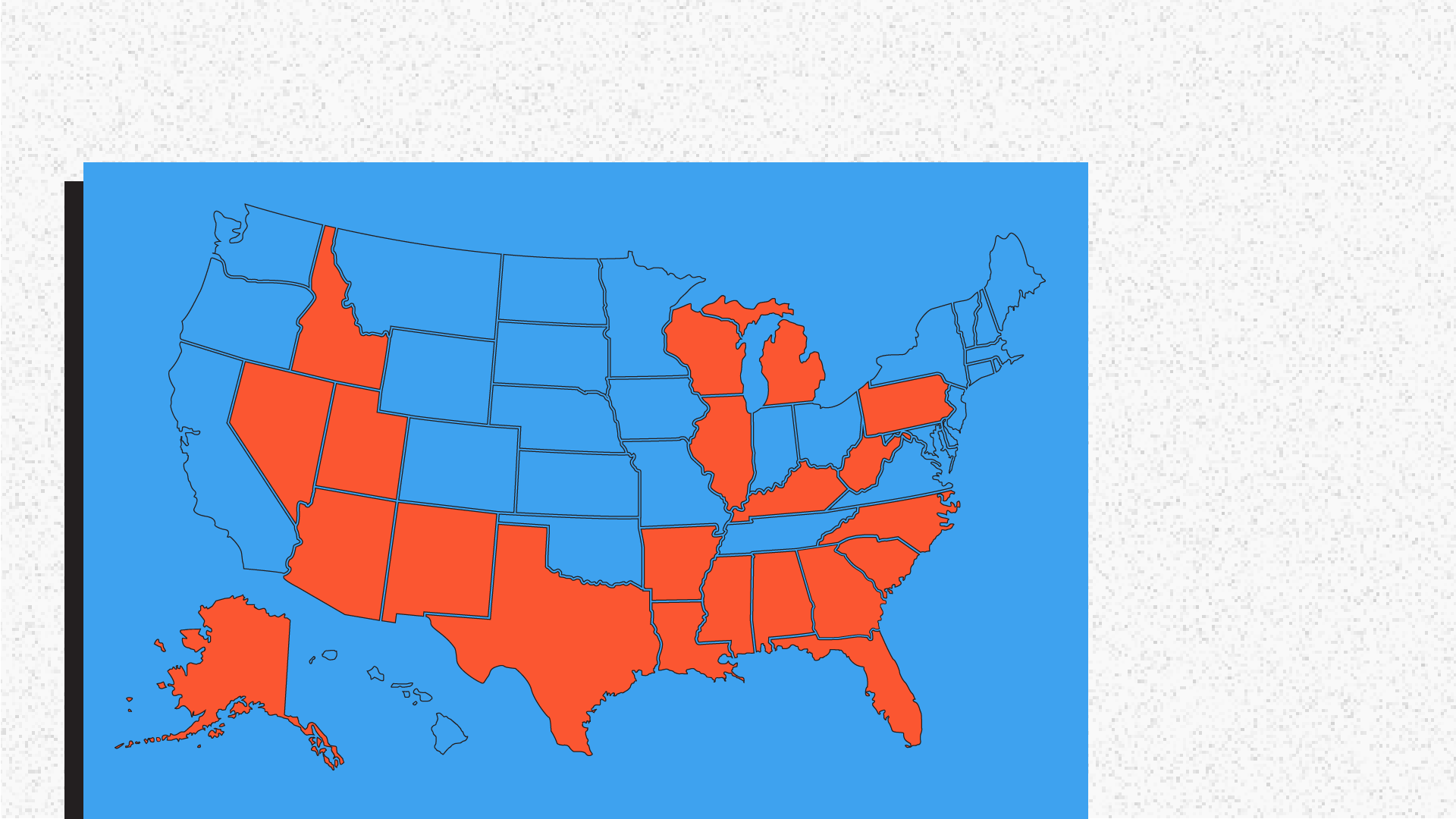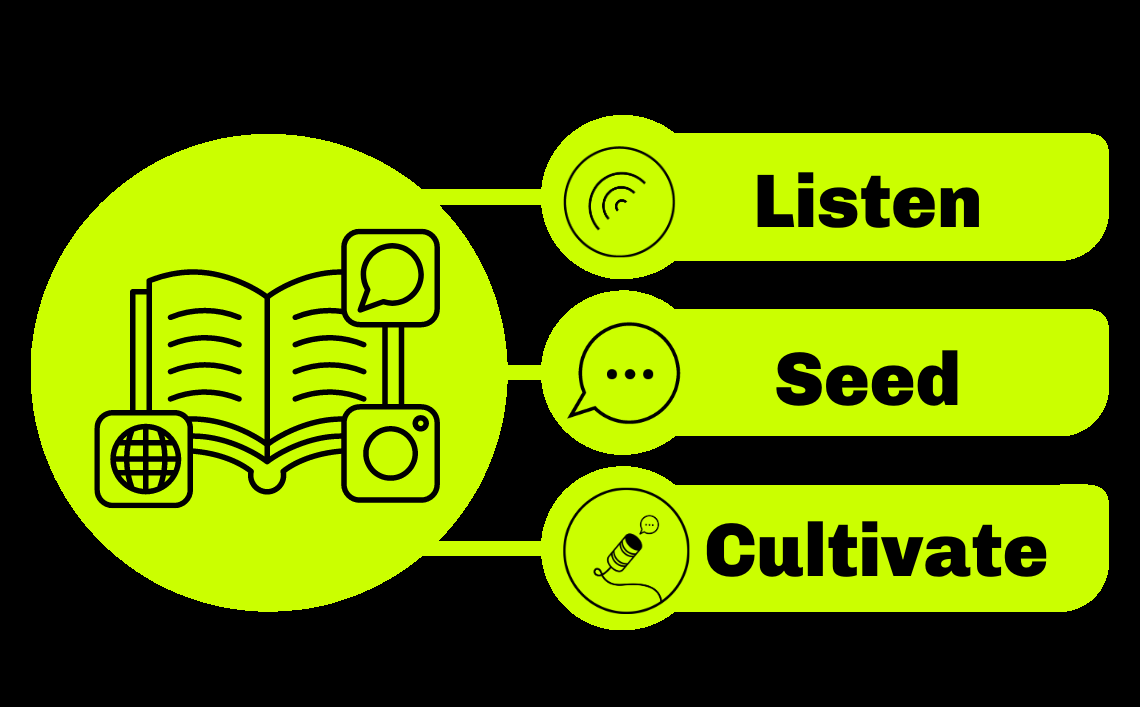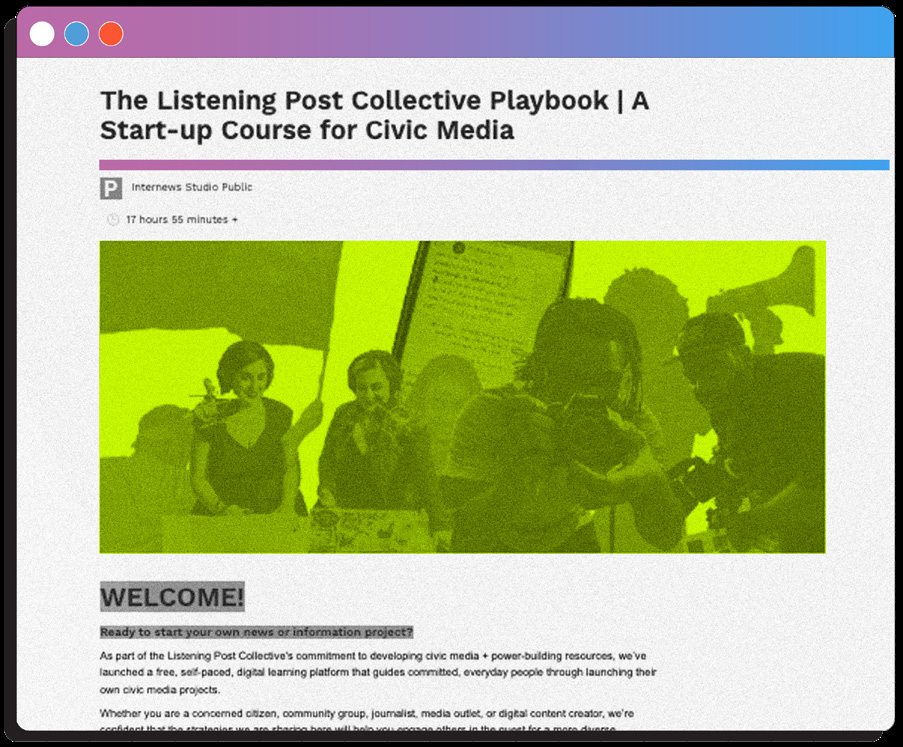Information is a basic human right.
Equitable Civic Media is Essential to Our Democracy
Access to information directly influences nearly every aspect of civic life, from voting and volunteerism to public health and housing. When reliable information abounds, engagement soars and communities thrive. When information is scarce or inequitable, civic engagement drops and communities suffer.
The well-documented shrinking and in some cases total loss of local newsrooms across the U.S. is a real problem, with millions of Americans now living in so-called “news deserts.” And yet, many U.S. communities—especially BIPOC and immigrant communities—have never been well-served by legacy media. Their stories are too often misrepresented or altogether ignored.
For true democracy to thrive, the goal can’t just be to save legacy local news, but to build a more equitable information ecosystem, where everyone has access to high-quality, culturally-relevant civic information in languages they speak.
Our ambitious five-year strategy calls for a $20 million investment to strengthen local information ecosystems in the most vulnerable regions across the United States. Contact us for more information.
Civic Media Opportunity Mapping
We think resources should flow to the communities that can benefit the most. To locate places where our work can have the greatest impact, we’ve developed a mapping process that takes a holistic view of the factors influencing a community’s access to reliable, relevant civic information. By looking at population demographics, voter turnout, existing information resources, and more, we can focus funding and effort in the immigrant and BIPOC communities where our work can do the greatest good.
Targeted Civic Media Design Partnerships
Information Garden (n.)
A community where everyone has equitable access to high-quality, culturally-relevant, civic information in their own language on the local issues they care about
Phase One: Listen (6 +months)
Our approach to civic media design starts with the most important tool in any journalist’s toolkit: Listening. Nobody knows a community better than its residents. That’s why we spend months building trust and working with civic leaders to survey community members about the local information landscape. Our process culminates in an Information Ecosystem Assessment—a snapshot of the community’s information gaps and opportunities.
Phase Two: Seed (6 months)
Based on what we learn in the Listening phase, we solicit proposals for civic media projects and offer microgrants to help equitable media leaders launch their startups.
Phase Three: Cultivate (3 + years)
We support our equitable media partners with:
• Three years of one-on-one coaching and business development support
• Full access to our peer network, where partners can connect with one another and grow their influence
• Strategic investments in their communities via local media literacy & civics 101 workshops, curated partnerships, and philanthropic advocacy
Guided DIY Civic Media Playbook
for Community-Led Projects
With the right support, civic media projects can thrive in any community. Our Civic Media Playbook is a free, self-paced, online platform that walks users step-by-step through the process of identifying and addressing information gaps. We also offer tools, financial support, and establish a peer network to help community members identify gaps and launch civic media projects.




